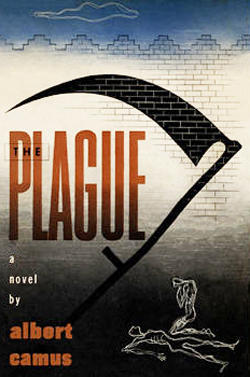Khadra is able to successfully weave this historical undercurrent throughout the main narrative. He uses his main character, Younes, to show readers the reality of the events during the Algerian War of Independence. Younes' relationships with his friends and other characters in the novel fully illustrate the turmoil of the times.
Younes, however, is rather difficult to love, as a main character. He is incredibly passive and he's more than happy to just allow things to happen. This becomes extremely irritating all the way through the novel because you constantly want to shake him and scream at him to take charge of his own destiny, to change things if he's not happy about them, to speak up. But he doesn't. Even though Younes is, undeniably, annoying, I cannot deny that Khadra does a great job in the characterisation and setting description department. He makes it very easy for you to imagine the slums of the city of Oran and the beautiful, middle class, country town of Rio Salado. His other characters are fleshed out, each one fully embodying their persona and either being someone you root for, or someone you grow to detest.
I enjoyed reading this novel, even though large parts of it frustrated me. I feel that, in some way, that's the main point Khadra is trying to convey; frustration. The Arabs are frustrated with the French regime, with their poverty, with their lack of power and control in their own country. The French are frustrated with watching the Algeria they know and love crumble all around them, with being forced out of a country they call home, with losing their power and control in a country filled with political turmoil.
Khadra has opened a door into the literature of a country that forms a large part of my identity. What the Day Owes the Night really gave me more of a personal insight into how significant the Algerian War of Independence was, for ethnic Algerians and French colonisers alike. And for me, this was the most important thing I gained from this reading experience.

I enjoyed reading this novel, even though large parts of it frustrated me. I feel that, in some way, that's the main point Khadra is trying to convey; frustration. The Arabs are frustrated with the French regime, with their poverty, with their lack of power and control in their own country. The French are frustrated with watching the Algeria they know and love crumble all around them, with being forced out of a country they call home, with losing their power and control in a country filled with political turmoil.
Khadra has opened a door into the literature of a country that forms a large part of my identity. What the Day Owes the Night really gave me more of a personal insight into how significant the Algerian War of Independence was, for ethnic Algerians and French colonisers alike. And for me, this was the most important thing I gained from this reading experience.


